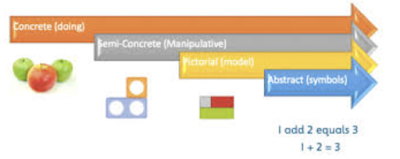Today we sat down with Margi Leech from EduShop to find out more about Numicon.
Where did it come from?
Maria Monstessori - A constructivist or "discovery" model, in which students learn concepts from working with materials rather than by direct instruction. Looking at patterns and relationships.
Catherine Stern - a German psychologist and educator. Developed mathematical manipulatives similar to cuisenaire rods.
Maths is a multi-sensory approach!
Maths can become too abstract too quickly for tamariki. They might give up trying to understand the concepts, and rely on trying to learn rules instead.
Important People/Sites
John Hattie - Visible Journey in Maths. Seeing learning through the eyes of the learner. Check him out!
Oxford Owl for planning sequences
Addition and Subtraction & Number Knowledge
Even and odd numbers ~ Skip counting ~ add/sub (placing shapes on top of each other).
Multiplication & Division
Fractions/Percentages/Percentages
Mahi-ā-ringa for the classroom
Addition - arms crossed to make a 'plus' Tapiri - add together
Subtraction - arms out wide in a line. Don't use 'minus'. Tangohia - take away
Multiplication - arms to make an 'x'
Division - 2 fists on top of one another.
Good ideas
- Display photos showing definitions of words and tamariki 'doing' the word.
- Use for basic facts questions when tamariki are working on their own. Some could use independently, some could work with teacher.
- Use whole class - Teacher Resource Book - Pattern and Algebra - introducing the = symbol. Balancing.
- Numicon shapes are wonderful. A huge range of free resources are available on the Numicon site.
Questions I am left with
- Spiral approach - revisiting strands more frequently. A fabulous idea but how would this look in school wide planning?
- How could this look in conjunction with DMIC?
- How is it so different from Numeracy? (both follow concrete to abstract approach)
- Is this just a giant sales pitch?
- Why is this not Ministry funded if it's so amazing?




